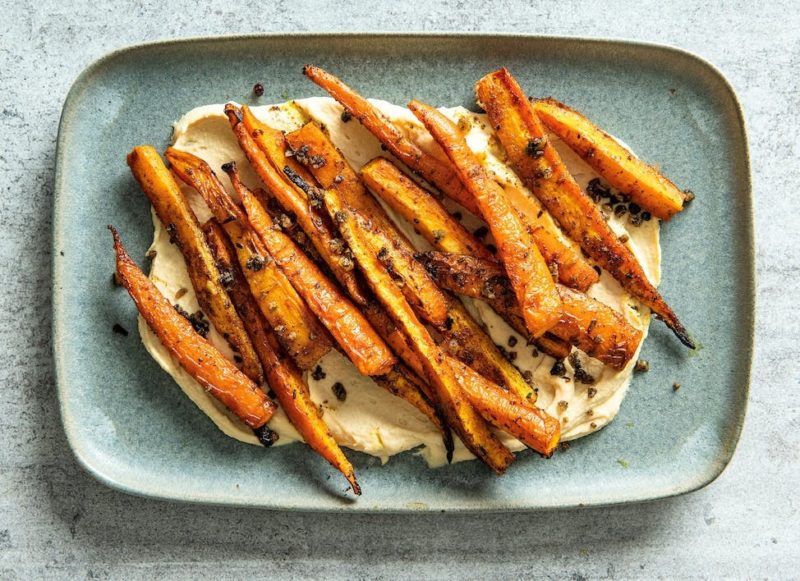Shopping Bulk for a Cook’s Kitchen
By Beth Dooley
A well-stocked kitchen is comforting and empowering, providing exactly what’s needed when it’s needed – spices, grains, beans, flours, cooking oils, sweeteners – all within arm’s reach. This is the best reason to buy in bulk and the key to curating a well-stocked but not uselessly overstocked kitchen, one that’s filled with interesting foods that make cooking fun and adventurous. There are a lot more reasons, too.
Buying in bulk saves money. For every dollar spent on packaged food $.81 goes into that packaging, as well as advertising and transport. Who wants to pay for that? When it comes to all bulk items, you’ll get the same quality (without the fancy wrapping). You don’t have to deal with the pasta or cereal boxes or dish soap bottles. Plus, you’ll save space you might need for other items in a small urban kitchen.
Buying in bulk also saves time, no last-minute rushing out to find those beans or grains. Bulk foods are often fresher because the bins turn over quickly and are thus refilled frequently with new product. Take dried beans, for example. The longer they are stored, the harder they become and the longer they will take to cook. So, the dried turtle beans you buy today are bound to be far better than packaged dried beans sitting on the shelf for a while. When it comes to nut butters, nothing is fresher than those you grind and package yourself. The freshly milled flour from Bakers Field Flour and Bread and Sunrise Flour Mill are sure tastier than any in five-pound bags.
When buying in bulk, curious cooks can purchase small quantities to try new foods out and refrain from over-buying things they may not like. Maybe you only want a few chocolates or candy-coated pretzels, not the whole bag to tempting you from the shelf. Buying in smaller quantities allows you to experience the difference in spice blends such as chili, za’atar, and curries or perhaps be inspired to create your own, mixing the different components to achieve the different flavor levels you like.
Here are a few tips for bulking up as you build your pantry and green the kitchen, also with ideas for storage. Remember to allow time to browse and note down PLU codes as you shop. Keep all bulk foods in airtight containers:
Refrigerate or freeze the following foods:
- Nuts and seeds: Because nuts are high in healthy oils, they tend to spoil quickly. Buy in small quantities.
- Flours (wheat, rye, corn, oat, etc.): Our locally milled flours are fresh and best kept in the refrigerator or freezer.
- Cornmeal
- Oatmeal and other rolled grains (rolled barley, rye, wheat, etc.)
- Maple syrup
- Dried yeast (for bread)
Pantry – Dark place
- Beans and lentils
- Rice and grains
- Popcorn
- Dried fruit
- Baking soda and baking powder
- Cereal grains and granola
- Coffee and tea
- Spices and dried herbs
- Salt
- Protein powder
- Sugar of all types
- Honey and molasses
The meal and the cook are only as good as the pantry behind them. Be adventurous, have fun bulking up!
DIY Za’atar Spice Blend
Makes about 1 cup
A Middle Eastern spice mix of dried thyme, oregano, marjoram, sumac, toasted sesame seeds and salt dates back to the Middle Ages and is a surefire way to lift roast vegetables, hummus, chicken, or fish up a notch. Make it in smaller batches and store in glass jar in the cupboard.
2 tablespoons sesame seeds
½ cup sumac
¼ cup dried thyme
¼ cup dried oregano
1 teaspoon coarse salt
In a small bowl, stir together all of the ingredients. Transfer to an airtight container and store for up to six months.
Serves 4 to 6
Try this with parsnips, turnips, sweet potatoes, rutabagas, or a mix of these root vegetables and serve them over hummus.
¼ cup olive oil
2 tablespoons za’atar
2 pounds carrots, scrubbed and cut lengthwise into sticks, about 2-inches wide
1 cup hummus or more for serving
1 tablespoon lime juice, or more to taste
Place a baking sheet in the oven and preheat to 425 degrees. In a large bowl, stir together the oil and za’atar. Add the carrots and toss to coat. Transfer the carrots to the hot baking sheet and arrange in an even layer. Drizzle any leftover oil over the carrots. Roast until the carrots are tender and browned all over, about 20 to 25 minutes, stirring halfway through.
To serve, spread the hummus onto a platter and arrange the carrots over the hummus. Drizzle with more lime juice to taste.

Image: Mette Nielsen